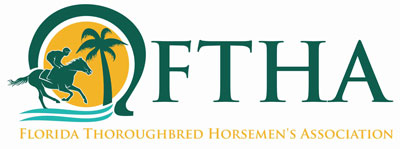December 13, 2011
While the State of Florida grapples with a $2 billion budget deficit, one of its top regulatory agencies is simultaneously expending untold taxpayer funds to escalate and exacerbate a costly legal battle to defend the expansion of gambling, to which Florida’s top-ranking state legislators have repeatedly voiced their increasing opposition during the past several weeks.
During early December 2011, the Florida Department of Business and Professional Regulation released dozens of pages of publicly-funded litigation designed to defend the very situation that the Florida Legislature is now vigorously debating how to curtail.
With the Cabinet members now having publicly declared their opposition to the expansion of gambling through destination resorts, the State of Florida’s attitude toward the unfettered proliferation of gambling has been greatly clarified.
But, to the chagrin of its sponsors, the intent of the would-be destination resort legislation’s proposed gaming commission had already been unexpectedly usurped by the Florida Department of Business and Professional Regulation’s (DPPR’s) highly questionable and unilateral award of a racing license to Gretna Racing LLC. As expected, the dubious license was ultimately used for purpose of introducing “pari-mutuel barrel racing.” Constituting a brand new gambling product, the license was awarded without enabling legislation, proper regulatory hearings or public input. As expected, Gretna Racing officials immediately used their new license to secure a slot machine referendum in Gadsden County—a loophole-laden legal maneuver that quickly brought copycat requests from other small pari-mutuel permitholders.
So outraged were top legislative leaders at Gretna Racing’s actions that, in a Senate Committee on Regulated Industries workshop last week, some called for the need to solve the Gretna Racing problem before taking up the destination resort bills.
“As the people’s regulator, it is unconscionable that the DBPR is using the public dime to finance protracted litigation to protect its unilateral expansion of gambling, when the Legislature is making it quite clear that this is not the direction it wants for the State of Florida,” remarked Florida Horsemen’s Benevolent and Protective Association (FHBPA) Executive Director Kent Stirling.
“What amazes me is that the State of Florida is actually finance failure by strangling off what could be thousands of jobs and exponentially greater wagering if Gretna Racing were to simply have adhered to legitimate Quarter Horse racing,” added FHBPA President Phil Combest, who also noted the startling disparity in opening day handle between Gretna Racing ($2,581) and Gulfstream Park ($4,837,605—constitutes a 22% increase for Gulfstream over the comparable day last season). These numbers were generated literally within two days of one another. The comparison that the Gulfstream Park and Gretna Racing facilities were the same as one another was made on December 2 by former Gulfstream Park attorney-turned-Gretna Racing Developer David Romanik in an interview with internationally known horse racing writer Ray Paulick.
Combest reminded that Florida regulations stipulate that pari-mutuel permitholders must demonstrate that they can protect the flow of revenue to the State. “So we’re killing the revenue we could have had with legitimate racing, killing jobs in the horse racing industry, hammering the gravestones with taxpayer-funded litigation and paying Florida legislators to contemplate the whole thing,” he said. “To me, that’s the real government waste.”
954.457.3516 | info@floridahorsemen.org



